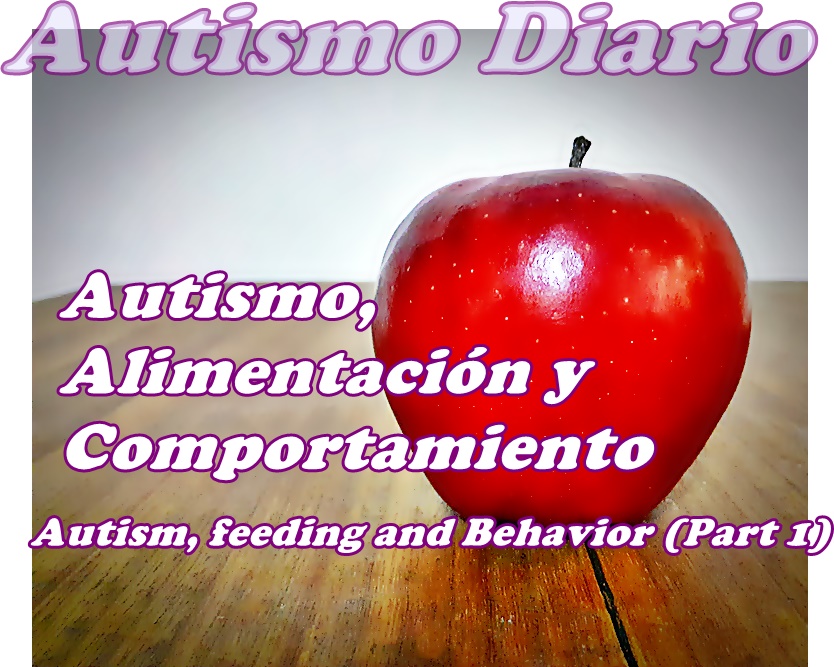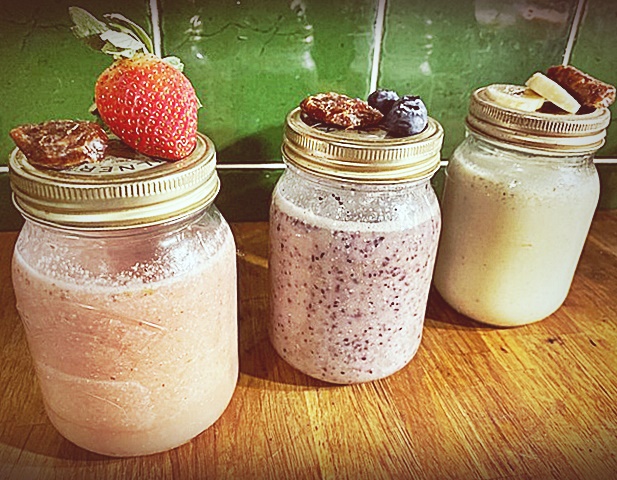
Hola queridos Amigos Especiales
Una de las razones por las cuales nos preocupamos como padres de niños con TEA-TDAH es su comportamiento, que es diferente en muchos aspectos al de los niños normales. Este motivo nos ha llevado a muchos a la desesperación lógica y al uso de la medicación como parte importante de su tratamiento en términos de "mejora". Todo esto se debe a que en la mayoría de los casos no estamos preparados para afrontar situaciones de esta naturaleza, además de querer que se comporten dentro de los parámetros considerados normales.
Si hay algo que debemos tener en cuenta, es el hecho de que con la administración de estos medicamentos; si bien es cierto que en la mayoría de los casos se obtiene un efecto rápido, también lo es que muchos de ellos provocan efectos secundarios en el niño que conllevan cambios físicos y psicológicos, tales como: Irritabilidad, inquietud, disforia, labilidad emocional, comportamiento obsesivo-compulsivo y exacerbación de las conductas estereotipadas, que en muchos casos hacen necesaria la retirada del fármaco y continúan en mayor o menor grado durante algún tiempo después de la suspensión de la medicación.
Por muchas razones, todas ellas relacionadas con el bienestar integral presente y futuro de mis hijos con TEA y TDAH, he optado hoy, a los 12 años, por decir "no" a la medicación y "sí" a cambiar su alimentación.

Imagen de Pexels en Pixabay
Los péptidos derivados de la caseína de la leche se llaman cafeomorfinas, mientras que los péptidos derivados del gluten se llaman gliadorfinas. Estos tienen una estructura química similar a la de un opioide, como la misma morfina, lo que hace que se produzca en el cerebro un efecto similar al que tendrían nuestros hijos si tomaran una droga. Esto provoca estos alimentos y por esta razón hay muchos padres que, cuando se trata de sus hijos, dicen que sólo quieren comer pan, pizza, galletas, queso y tomar leche. CAIPA-SUCRE- Venezuela
Entonces, ¿cómo podemos observar el efecto de estos alimentos en el comportamiento de nuestros hijos?
En las personas adictas a los opiáceos se producen conductas como el aislamiento, la autoestimulación, las autolesiones, la insensibilidad al dolor, los cambios radicales de humor, las estereotipias, etc. Los 5 sentidos están alterados: Tacto, Vista, Olfato, Oído y Gusto.
El tacto
Pueden pasar de sentir menos a sentir más, lo que les lleva a tener comportamientos autoagresivos, a herirse con mordiscos, a golpearse la cabeza contra la pared y a no sentir nada. Por el contrario, pueden sentir un gran dolor al peinarse y cortarse las uñas.
Ver
Pueden ver menos y estar pegados al televisor o al monitor del ordenador, o por el contrario, ver más y quedarse debajo de la mesa o meterse en el armario.
Audición
Oyen menos, aunque generalmente perciben los sonidos a un nivel más alto, y pueden tener que taparse los oídos, por lo que no soportan los centros comerciales y las fiestas con mucha gente. Cuando oyen poco, cantan y gritan con fuerza y les gustan los lugares donde se les oye con fuerza. En estos casos, es aconsejable poner música de fondo para estimularlos
Gusto y olfato
Cambiarán porque el gusto y el olfato van de la mano. Si no notan los olores, la "salivación constante" será su "conexión con el mundo exterior" y podrían comer literalmente "cualquier cosa".
Sienten la necesidad de olerlo todo, incluso la comida, antes de comerla. Por otro lado, si huelen mucho, son muy quisquillosos y casi siempre comen lo mismo, y muchos olores en la cocina no son de su agrado, por lo que no están allí a menudo.
Un consejo de una mamá azul a otra: "Cuando tomes la importante decisión de cambiar la dieta de tu hijo, sé constante y paciente. Cualquier cambio requiere tiempo".
Además de los trastornos anteriores, aumenta la impulsividad y la hiperactividad, así como el comportamiento agresivo, por lo que la atención, la comprensión y la risa incontrolada se ven afectadas.
Es muy importante tener en cuenta que cada uno de los trastornos anteriores puede variar, y lo hará, de un niño a otro, y están estrechamente relacionados con el estado del intestino, la reacción a ciertos alimentos y la acción de las enzimas, entre otros muchos factores.
English translation
Hello dear special friends!!!
One of the reasons we worry as parents of children with ASD-ADHD is their behavior, which is different in many ways from the behavior of normal children. This reason has led many of us to logical despair and the use of medication as an important part of their treatment in terms of "improvement". All of this is due to the fact that in most cases we are not prepared to deal with situations of this nature, in addition to wanting them to behave within what are considered normal parameters.
If there is something that we need to consider, it is the fact that with the administration of these medications; although it is true that in most cases a quick effect is obtained, it is also true that many of them cause side effects in the child that lead to physical and psychological changes, such as: Irritability, restlessness, dysphoria, emotional lability, obsessive-compulsive behavior, and exacerbation of stereotypic behaviors, which in many cases necessitate withdrawal of the drug and continue to a greater or lesser degree for some time after the medication is discontinued.
For many reasons, all related to the present and future comprehensive well-being of my children with ASD and ADHD, I have chosen today, at 12 years old, to say "no" to medication and "yes" to changing their diet.

Imagen de leafholisticcentre en Pixabay


Imagen de leafholisticcentre en Pixabay
The peptides derived from milk casein are called caffeomorphins, while the peptides derived from gluten are called gliadorfinas. These have a chemical structure similar to an opioid, like the same morphine, which causes a similar effect to occur in the brain that our children would have if they took a drug! This provokes these foods and for this reason there are many parents who, when it comes to their children, say that they only want to eat bread, pizza, crackers, cheese and drink milk. CAIPA-SUCRE- Venezuela

So how can we observe the effect of these foods on our children's behavior?
Behaviors such as isolation, self-stimulation, self-harm, insensitivity to pain, radical mood swings, stereotypies, etc. occur in people addicted to opiates. The 5 senses are altered: Touch, Sight, Smell, Hearing and Taste.
Touch
They can go from feeling less to feeling more, which leads to self-aggressive behavior, hurting themselves with bites, banging their head against the wall, and not feeling anything. In contrast, they can feel great pain when combing and cutting their nails.
.
View
They may see less and be glued to the television or computer monitor, or on the contrary, see more and stay under the table or go into the closet.
Hearing
They hear less, although they generally perceive sounds at a higher level, and may have to cover their ears, which is why they cannot stand shopping malls and parties with many people. When they hear little, they sing and shout loudly and like places where they can be heard loudly. In these cases, it is advisable to play background music to stimulate them.
Taste and smell
They will change because taste and smell go hand in hand. If they don't notice smells, "constant salivating" will be their "connection to the outside world" and they could literally eat "anything".
A piece of advice from one Blue Mom to another: "When making the important decision to change your child's diet, be consistent and patient. Any change takes time."
( )
)Las fotografías y ediciones de imágenes son de mi autoría
Dispositivo: Teléfono celular Samsung Galaxy m30
They feel the need to smell everything, even food, before they eat it. On the other hand, if they smell a lot, they are very picky and almost always eat the same thing, and many smells in the kitchen are not to their liking, so they are not there often.
.
In addition to the above disorders, impulsivity and hyperactivity increase, as well as aggressive behavior, so attention, comprehension, and uncontrolled laughter are impaired.
It is very important to keep in mind that each of the above disorders can and will vary from child to child and are closely related to the state of the GUT, reaction to certain foods, and enzyme action among many other factors.
(
 )
)Dispositivo: Teléfono celular Samsung Galaxy m30
~~~ embed:1589055269270880256 twitter metadata:MTQ5NjA3NjY0MTgxODI3MTc0OXx8aHR0cHM6Ly90d2l0dGVyLmNvbS8xNDk2MDc2NjQxODE4MjcxNzQ5L3N0YXR1cy8xNTg5MDU1MjY5MjcwODgwMjU2fA== ~~~
The rewards earned on this comment will go directly to the people( @esthersanchez ) sharing the post on Twitter as long as they are registered with @poshtoken. Sign up at https://hiveposh.com.
Has sido curado por @visualblock / You've been curated by @visualblock
Bienvenidas delegaciones / Delegations welcome
Encuentra nuestra comunidad aquí / Find our community here
Trail de Curación / Curation Trail
Muchas gracias por su apoyo!!
¡Hola @esthersanchez! Este es un contenido interesante y necesario de presentar. Si, la alimentación es el mejor tratamiento en el autismo y se ve en las mejorías del comportamiento, hay muchos cambios positivos con la alimentación especial. Felicitaciones por la forma de pensar en bienestar de tus hijos y gracias por traer este tema a la comunidad pensando en las madres azules 💙
¡Bienvenidas las Delegaciones! / Welcome Delegations!
Trail de Curación / Curation Trail
Para mi, más que un gusto, es un deber. La alimentación, es definitivamente crucial si queremos darle una mejor calidad de vida a nuestros hijos, especialmente aquellos quienes presentan mayor necesidad por su condición. Gracias por la oportunidad!
Ask your concerns about why you need to improve, welcome from Cambodia.